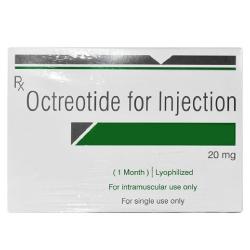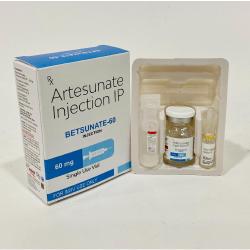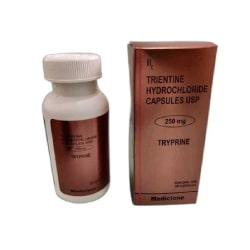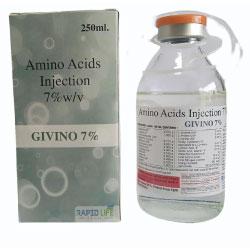Description
Octreotide acetate Injection is a somatostatin analogue indicated for various conditions:
- Acromegaly: Initial treatment with subcutaneous injections, followed by intragluteal injections.
- Severe diarrhea/flushing in metastatic carcinoid tumors: Treatment involves subcutaneous injections followed by intragluteal injections.
- Profuse watery diarrhea in VIP-secreting tumors: Similar treatment approach as for metastatic carcinoid tumors.
FAQ's
1.How is Octreotide acetate administered?
Initial subcutaneous injections followed by intragluteal injections at specified intervals.
2.What are the common side effects?
Common side effects include diarrhea, cholelithiasis, abdominal pain, flatulence, back pain, fatigue, headache, nausea, and dizziness.
3.Are there any specific precautions to be taken during treatment?
Regular monitoring of cholelithiasis, glucose levels, thyroid function, and cardiac function is advised.
4.Can Octreotide Acetate be used in pregnancy?
It’s essential to inform premenopausal females about the potential risk of unintended pregnancy.
How does Octreotide work?
Octreotide is a natural hormone, somatostatin. It suppresses LH response to GnRH, decreases splanchnic blood flow, and inhibits the release of serotonin, gastrin, vasoactive intestinal peptide, secretin, motilin, and pancreatic polypeptide. Octreotide reduces and normalizes growth hormone and/or IGF-1 (somatomedin C) levels in patients with acromegaly.






